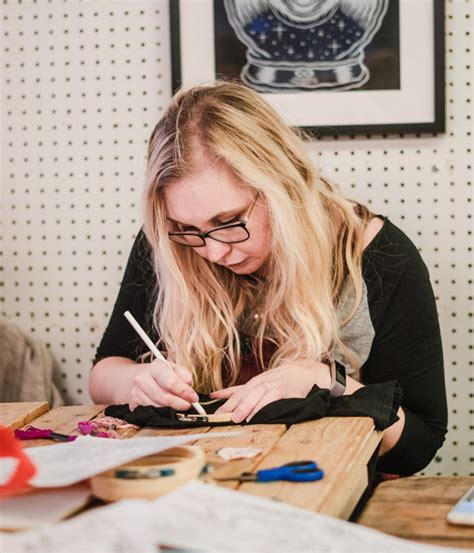A Quote by Robin Hobb
Most prisons are of our own making. A man makes his own freedom, too.
Related Quotes
All events, no matter how earthshaking or bizarre, are diluted within moments of their occurrence the the continuance of the necessary routines of day-to-day. -Fitz Most prisons are of our own making. A man makes his own freedom, too. -Chade When you cut pieces out of the truth to avoid looking like a fool, you end up sounding like a moron instead. -Burrich We left. Walking uphill and into the wind. That suddenly seemed a metaphor for my whole life. -Fitz
In these sacred documents are embodied eternal principles that no man, group of men, or nation has the right to withhold from others. Here is our basis for freedom of individual achievement. Our Constitution with its Bill of Rights guarantees to all our people the greatest freedom ever enjoyed by the people of any great nation. This system guarantees freedom of individual enterprise, freedom to own property, freedom to start one's own business and to operate it according to one's own judgment so long as the enterprise is honorable.
Only a law-order which holds to the primacy of God's law can bring forth true freedom, freedom for justice, truth, and godly life. Freedom as an absolute is simply an assertion of man's "right" to be his own god; this means a radical denial of God's law-order. "Freedom" thus is another name for the claim by man to divinity and autonomy. It means that man becomes his own absolute.
Private property is a natural fruit of labor, a product of intense activity of man, acquired through his energetic determination to ensure and develop with his own strength his own existence and that of his family, and to create for himself and his own an existence of just freedom, not only economic, but also political, cultural and religious.
The most dangerous man in the world is the contemplative who is guided by nobody. He trusts his own visions. He obeys the attractions of an interior voice but will not listen to other men. He identifies the will of God with anything that makes him feel, within his own heart, a big, warm, sweet interior glow. The sweeter and the warmer the feeling is, the more he is convinced of his own infallibility.
Does the open wound in another's breast soften the pain of the gaping wound in our own? Or does the blood which is welling from another man's side staunch that which is pouring from our own? Does the general anguish of our fellow creatures lessen our own private and particular anguish? No, no, each suffers on his own account, each struggles with his own grief, each sheds his own tears.
Freedom, by its nature, must be chosen, and defended by citizens, and sustained by the rule of law and the protection of minorities. And when the soul of a nation finally speaks, the institutions that arise may reflect customs and traditions very different from our own. America will not impose our own style of government on the unwilling. Our goal instead is to help others find their own voice, attain their own freedom, and make their own way.
There is a man who exists as one of the most popular objects of leadership, legislation, and quasi-literature in the history of all men. . . . This man, that object of attention, attack, and vast activity, cannot make himself be heard, let alone understood. He has never been listened to. . . . That man is Black and alive in white America where the media of communication do not allow the delivery of his own voice, his own desires, his own rage.
Life consists of sadness too. And sadness is also beautiful; it has its own depth, its own delicacy, its own deliciousness, its own taste. A man is poorer if he has not known sadness; he is impoverished, very much impoverished. His laughter will be shallow, his laughter will not have depth, because depth comes only through sadness. A man who knows sadness, if he laughs, his laughter will have depth. His laughter will have something of his sadness too, his laughter will be more colorful.





































